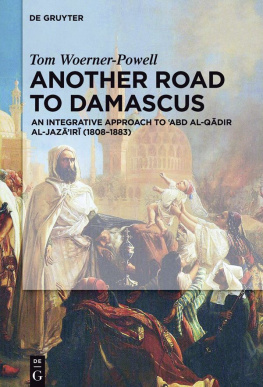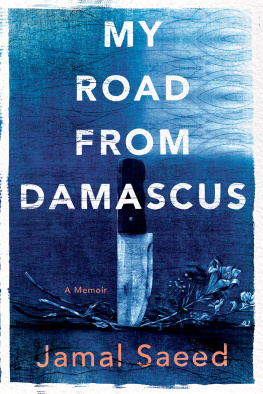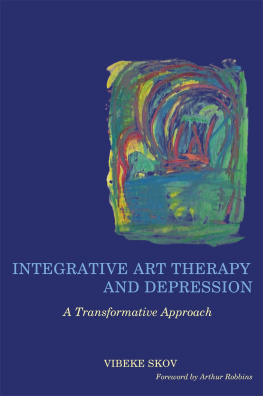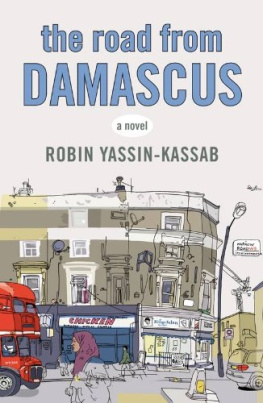Tom Woerner-Powell - Another Road to Damascus: An Integrative Approach to Abd al-Qadir al-Jazairi (1808-1883)
Here you can read online Tom Woerner-Powell - Another Road to Damascus: An Integrative Approach to Abd al-Qadir al-Jazairi (1808-1883) full text of the book (entire story) in english for free. Download pdf and epub, get meaning, cover and reviews about this ebook. year: 2017, publisher: De Gruyter, genre: Detective and thriller. Description of the work, (preface) as well as reviews are available. Best literature library LitArk.com created for fans of good reading and offers a wide selection of genres:
Romance novel
Science fiction
Adventure
Detective
Science
History
Home and family
Prose
Art
Politics
Computer
Non-fiction
Religion
Business
Children
Humor
Choose a favorite category and find really read worthwhile books. Enjoy immersion in the world of imagination, feel the emotions of the characters or learn something new for yourself, make an fascinating discovery.
- Book:Another Road to Damascus: An Integrative Approach to Abd al-Qadir al-Jazairi (1808-1883)
- Author:
- Publisher:De Gruyter
- Genre:
- Year:2017
- Rating:5 / 5
- Favourites:Add to favourites
- Your mark:
- 100
- 1
- 2
- 3
- 4
- 5
Another Road to Damascus: An Integrative Approach to Abd al-Qadir al-Jazairi (1808-1883): summary, description and annotation
We offer to read an annotation, description, summary or preface (depends on what the author of the book "Another Road to Damascus: An Integrative Approach to Abd al-Qadir al-Jazairi (1808-1883)" wrote himself). If you haven't found the necessary information about the book — write in the comments, we will try to find it.
Tom Woerner-Powell: author's other books
Who wrote Another Road to Damascus: An Integrative Approach to Abd al-Qadir al-Jazairi (1808-1883)? Find out the surname, the name of the author of the book and a list of all author's works by series.
Another Road to Damascus: An Integrative Approach to Abd al-Qadir al-Jazairi (1808-1883) — read online for free the complete book (whole text) full work
Below is the text of the book, divided by pages. System saving the place of the last page read, allows you to conveniently read the book "Another Road to Damascus: An Integrative Approach to Abd al-Qadir al-Jazairi (1808-1883)" online for free, without having to search again every time where you left off. Put a bookmark, and you can go to the page where you finished reading at any time.
Font size:
Interval:
Bookmark:
Tom Woerner-Powell
Another Road to Damascus

ISBN 978-3-11-049699-4
e-ISBN (PDF) 978-3-11-049951-3
e-ISBN (EPUB) 978-3-11-049769-4
Library of Congress Cataloging-in-Publication Data
A CIP catalog record for this book has been applied for at the Library of Congress.
Bibliografic information published by the Deutsche Nationalbibliothek
The Deutsche Nationalbibliothek lists this publication in the Deutschen Nationalbibliografie; detailed bibliografic data are available on the Internet at http://dnb.dnb.de.
2017 Walter de Gruyter GmbH, Berlin/Boston
Cover image: Jean Baptiste Huysmans, Abd-el-Kader. Gros et Delettrez, Paris/wikicommons
www.degruyter.com
I would very much like to thank all of the people and institutions which have made this work possible. I would like to thank Oxford University and the Arts and Humanities Research Council for arranging and funding my doctoral studies, as well as to the Fondation Ousseimis Prix de la Tolrance for funding further research which has also enriched the present work. Special thanks must be given to my supervisors Ronald Nettler and Michael Willis.
Most of all, I would like to thank my parents, Ricca and Markus, my brother Christopher, and most especially Abby, my wife.
In this book, transliteration will broadly follow the conventions of the Encyclopaedia of Islam with the exceptions that qf will be represented by q , jm by j , and shn by sh (hence Abd al-Qdir al-Jaz ir rather than Abd al-dir al-Dshaz ir ). Sun and moon letters will not be distinguished. In some cases, conventional spelling will be retained where the word in question has entered into sufficiently wide usage in English to justify this, or so as to reproduce the source material.
In what follows, all translations from German, French, and Arabic (unless otherwise stated) are my own with the exception of Qurnic excerpts, which are from the Ysuf Al version.
All errors are my own.
A great deal has already been said about Abd al-Qdir al-Jazir. He was and is a figure of remarkable historical significance, popular enthusiasm, and scholarly interest. Yet doubts remain. While all agree that he was a fascinating figure, disagreement reigns over why this is the case. We are told both that he was a pioneer on the cusp of modernity, and that he was a romantic, bent on returning to a long-gone past. We learn that he was a cosmopolitan Francophile, and that he was the pioneer of Algerias struggle for independence from France. He is described as a selfless and ascetic man of God, and as an ambitious manipulator of others for the sake of personal advancement. He is presented to us as an innovative metaphysician who embraced modern European philosophies, and as the unerringly faithful spokesman for a Muslim mystic some eight centuries dead. A great deal has been said about Abd al-Qdir al-Jazir, and all too much of it has been paradoxical and contradictory.
That so much has been written about him is only right. His influences, direct and indirect, deliberate and accidental, practical and symbolic, are manifold. In the 1830s and 1840s he was the foremost leader of Algerian resistance to French colonialism, often named alongside Shamyl (Imm Shmil) as the ages foremost mujhid : a holy warrior in the cause of jihd . Sympathisers saw a chevalier, opponents a fanatic. His heroic defence of thousands of Christians during the Syrian sectarian riots of 1860 justly made him a cause clbre across the western world. In between, his name had become a potent political tool in contestations between Moroccan centres of power, between French monarchists and republicans, between English, French, and Ottoman imperialists, and between all of these and new varieties of cosmopolitans. Many still draw inspiration from his memory today.
Abd al-Qdir has come to be many things to many people. Yet the panoply of radically differing images now confronting us share a common theme. It is with this theme that this book will concern itself. This study will aim to question a crucial narrative structure imposed on Abd al-Qdirs life even by perspectives which seem irreconcilably opposed. Remarked or unremarked, yet invariably unchallenged, it forms the most fundamental presupposition assumed by his many
No matter which perspective on Abd al-Qdir one examines, this pattern manifests itself. It is less an argument than a discursive formation, the unquestioned structure within which the overwhelming majority of writing on the subject operates. It shows itself both implicitly, through the presumption that only one half of his life is worth discussing in lieu of the other, and explicitly, through overt periodic juxtaposition and psychological accounts of personal transformation. It arises as the result of overt authorial intention, and as an unintended product of convention. Every telling of Abd al-Qdirs story naturally has its own strengths and its weaknesses, its own inspirations, interpretations, and ellipses. Yet the presumption that his life is best understood in two separate halves one Algerian, one Damascene has played an unexamined role in a deeply unhelpful hermeneutic circle, needlessly detracting from the many insights of past accounts. The narrative of conversion encourages us to over-state individual characteristics of his earlier and later lives, hardening subtle distinctions into black and white contrasts, contemplating actualities less than archetypes.
This mythology of incoherence
To this end, the shifting array of accounts brought by successive waves of biographers will be compared to their primary sources, and shown to have been shaped by the pressure of this appealing narrative arc. The Road to Damascus narrative will be compared to a less fractured reading of Abd al-Qdirs life and revealed as an artificial imposition, whose mainsprings can be traced back to specific developments in European colonial and cultural history. In the absence of such potentially misleading narrative impositions, context and continuity will be brought to the fore, replacing conflict and contradiction.
A more conventional, more conservative, more human figure will be described as a result of this interrogation than is reflected in previous accounts yet one who is no less remarkable for all of that. Abd al-Qdirs path was not that of severe Saul of Tarsus, whose journey transformed him into loving St Paul: no blinding light, no great conversion. Abd al-Qdir, it will become apparent, took another road to Damascus.
While this study will draw on a wide range of primary materials, it does not seek to simply replace previous accounts with its own. Rather, Abd al-Qdirs path through life will be traced in partnership with previous biographies particularly the most recent. It will offer this perspective as a corrective to the narrative of conversions effects on previous scholarship. The aim is constructive, both in offering a new departure of its own and in presenting critiques of earlier scholarship. This will both enhance our understanding of Abd al-Qdirs life as he lived it, and contribute meaningfully to debates surrounding his life and ideas.
This effort will be integrative in the sense of resisting the essential separation or elimination of significant elements of Abd al-Qdirs thought and action, and will be concomitantly wary of reductive approaches. The goal is to explain without explaining away.
Abd al-Qdirs life has been addressed by scholars working to very different sets of methodologies. In order to engage constructively with the gamut of work on him, it will be necessary both to meet these on their own terms and, where possible and appropriate, to bring them into dialogue. This attempt must unavoidably, therefore, have a multi-disciplinary character, representing both a challenge and an opportunity. Every effort will be made to avoid over-reliance upon the terminology and internal debates which are the preserve of one discipline rather than another. Instead, issues will be dealt with as and when they arise within the studys chronological progression, and in as broadly intelligible a lexicon as possible.
Next pageFont size:
Interval:
Bookmark:
Similar books «Another Road to Damascus: An Integrative Approach to Abd al-Qadir al-Jazairi (1808-1883)»
Look at similar books to Another Road to Damascus: An Integrative Approach to Abd al-Qadir al-Jazairi (1808-1883). We have selected literature similar in name and meaning in the hope of providing readers with more options to find new, interesting, not yet read works.
Discussion, reviews of the book Another Road to Damascus: An Integrative Approach to Abd al-Qadir al-Jazairi (1808-1883) and just readers' own opinions. Leave your comments, write what you think about the work, its meaning or the main characters. Specify what exactly you liked and what you didn't like, and why you think so.











